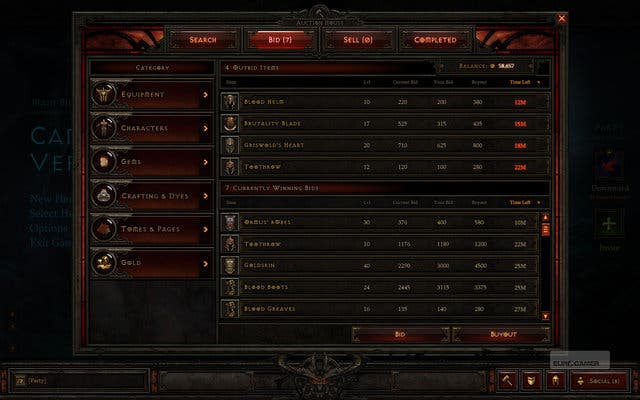Saturday Soapbox: Pay Up or Shut Up
Why we should stop moaning and spend more on our games.
In both these instances, the issue is one of perceived value. There's a failure to understand that you're paying not just for what's new, but for your continued enjoyment of a rarefied pastime that's tailored to your tastes, regularly updated and, pound for hour, offers unparalleled value.
There's a difference between these - content packs designed to recoup the hidden costs of maintaining an online game - and such meaningless commoditisation as Oblivion's infamous horse armour, World of Warcraft's huge-earning celestial steed or the $70 monocle that sparked a player uprising in Eve Online. Apart from the miscalculated value of the items themselves, WOW and Eve already charge subscription fees for their maintenance, while Oblivion has no online life to support.
The problem is that this difference isn't being explained very well. "We see gaming as a service, not a product," games companies say - parroting a phrase coined by Valve's Gabe Newell - before trying to sell us that service disguised as product. Nervous of charging players for something they're accustomed to getting for free - despite its clear value to them - the publishers offer a spoonful of content to help the medicine go down.
Things are changing. COD Elite and the EA Sports Season Ticket aren't content as such; they're entirely optional and additional paid-for services (not very appealing ones, I grant you) based around popular online games. But the shift in emphasis just seems to baffle gamers further; they react as if being offered the option to pay extra for something they didn't have before is somehow stealing from their mouths.
Educating players that online gaming is something that both needs and deserves to cost money is not going to be easy. Marketers and game designers alike are still experimenting, and I'm the first to admit that a perfect formula has yet to be found. Certainly, some are much more elegant than others.

The Diablo III auction house - in which Blizzard will allow players to trade game items with each other for cash, and take a cut of each transaction - sounds controversial and mercenary. But as I realised when investigating it in depth last week, it's actually an exceptionally subtle scheme: it's optional, aimed specifically at hardcore players, rewards players as well as Blizzard and doesn't break the game design or fiction. If it works, it ought to provide Diablo III with an organic, self-sustaining financial ecosystem with the minimum of forcing from the developer.
Imaginative bonus services tailored to the game design, like this auction house, could be the future. The logical alternative - a subscription fee - seems unpalatable if offers access to anything less than a WOW-sized universe of content (in part because Microsoft has set the precedent of charging for online gaming at the platform level with Xbox Live).
At the other end of the scale, we have the free-to-play model. Although this can work very well for session-based multiplayer games - Team Fortress 2 and League of Legends are great examples - I agree with John that the way it devalues the central gaming experience leaves a bad taste in the mouth.
The odd thing is that the extension of single-player games through paid add-ons is far less controversial. Although the quality and value for money of much single-player DLC is debatable, you won't find many objecting to it on principle; paying money for a new car or a few hours of questing is a transaction people understand. But paying for a continuing service that offers dozens of hours of entertainment, for some reason, we don't get.
Yes, we're being asked to pay more for our games. But that's because we get more out of them than we ever used to. They're bigger, they last longer, they're more adaptive, more social and better supported. They have almost limitless potential.
If you're not interested, you can walk away and on to the next thing. If, however, you want to go deeper, be prepared to reach a little deeper into your pocket for it. The games deserve it; the people who make and maintain them deserve it. Is it really too much to ask?


-3-31-23-screenshot.png?width=291&height=164&fit=crop&quality=80&format=jpg&auto=webp)





